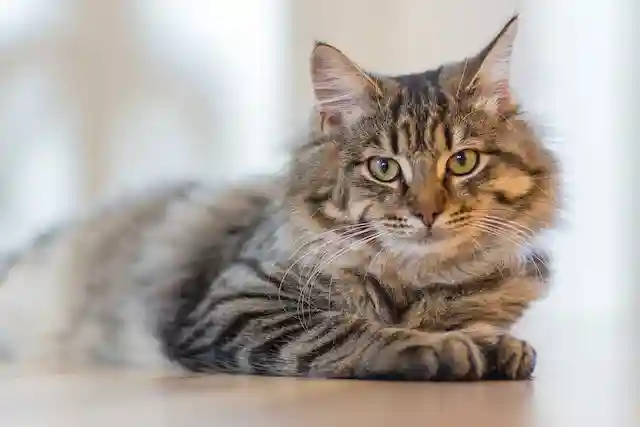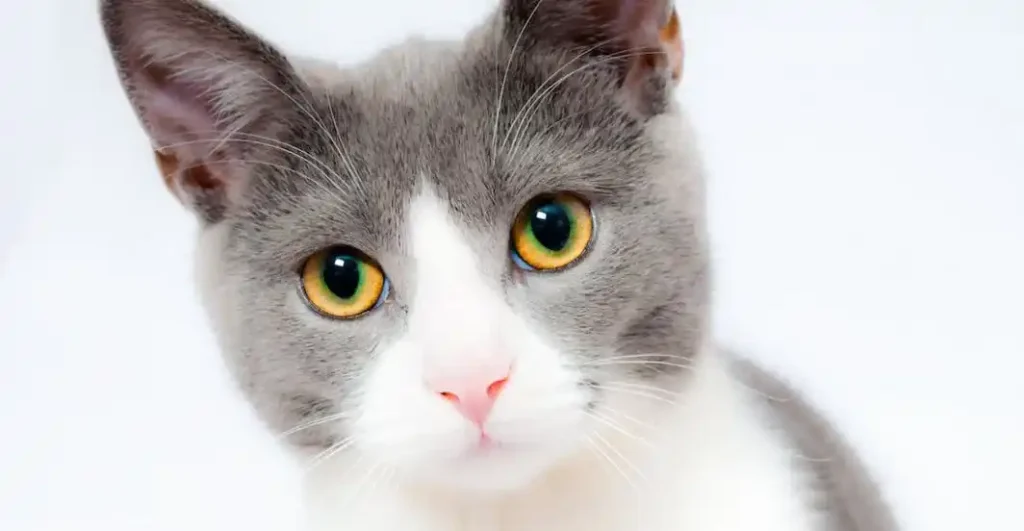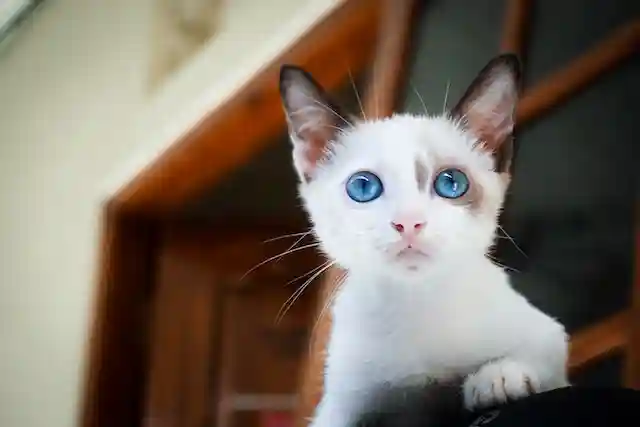In a world where our pets hold a special place in our hearts, finding the perfect name is essential. Japanese cat names offer a unique blend of elegance and charm, making them a popular choice among cat owners. In this guide, we’ll dive deep into the world of Japanese cat names. We will provide you with a wealth of ideas and insights to help you find the ideal name for your feline companion.
Why Choose a Japanese Cat Name?

Japanese cat names are not just a trendy choice; they also hold a deeper significance. They reflect the beauty of Japanese culture and language while adding a touch of sophistication to your cat’s identity. Choosing a Japanese name for your feline friend allows you to connect with this rich heritage and embrace a unique naming tradition.
Traditional Japanese Cat Names

In Japan, tradition is cherished, and this extends to the names given to pets. Traditional Japanese cat names often draw from the country’s history, folklore, and classical literature. Consider names like “Sakura” (cherry blossom) or “Hiroshi” (generous) for a touch of timeless elegance. Here are some more examples of traditional Japanese cat names:
- Sakura – Meaning “cherry blossom,” a name that embodies the beauty and fleeting nature of life.
- Hiroshi – This name signifies “generous” and reflects a warm and giving personality.
- Miyuki – Translating to “beautiful happiness,” a name that brings joy to your cat’s identity.
- Yuki – A simple yet elegant name meaning “snow,” perfect for a pure white cat.
- Hana – Symbolizing “flower,” it adds a touch of natural beauty to your cat’s name.
- Kiku – Derived from “chrysanthemum,” a name associated with longevity and rejuvenation.
- Taro – A common Japanese name that can be charming for your feline friend.
- Momo – Meaning “peach,” this name is sweet and endearing.
- Chibi – Translating to “small” or “cute,” an apt name for a tiny and adorable cat.
- Tama – A name with various meanings, including “jewel” and “spirit,” adding a mystical touch.
Modern Japanese Cat Names

For those seeking a more contemporary flair, modern Japanese cat names are a fantastic choice. These names reflect current trends and are inspired by pop culture, technology, and everyday life in Japan. Names like “Sora” (sky) and “Ren” (lotus) bring a modern twist to your cat’s identity. Here are some modern Japanese cat names to consider for your feline friend:
- Sora – Meaning “sky,” a name that reflects the vastness and freedom of the open sky.
- Ren – Translating to “lotus,” a symbol of purity and enlightenment in Japanese culture.
- Yuki – While traditionally means “snow,” it’s a popular modern name for its simplicity and elegance.
- Aki – Signifying “autumn,” a season of beauty and change.
- Kai – Meaning “ocean,” a name that evokes a sense of vastness and mystery.
- Hoshi – Translating to “star,” a name that signifies brightness and hope.
- Nori – Derived from “seaweed,” this name has a unique and playful appeal.
- Mio – Signifying “beautiful cherry blossom,” capturing the essence of Japanese aesthetics.
- Sakai – A modern twist on “Sakura,” adding a contemporary touch to a classic name.
- Nao – Meaning “honest” or “straightforward,” reflecting a cat’s genuine nature.
Cute and Playful Japanese Cat Names

If your cat is all about cuteness and playfulness, there’s no shortage of adorable Japanese names to consider. Names like “Mochi” (rice cake) or “Kiki” (chirp) capture the essence of your lively feline companion.
- Mochi – A sweet and squishy Japanese rice cake, just like your cuddly cat.
- Kiki – A name that sounds playful and represents the joyful chirping of a kitten.
- Piko – Meaning “tiny” or “petite,” perfect for your dainty and adorable cat.
- Chibi – Translating to “small” or “cute,” an apt name for a tiny and charming kitty.
- Mimi – Signifying “ears,” a cute name that celebrates your cat’s perky ears.
- Tama-chan – Adding “chan” to “Tama” makes it affectionate and endearing.
- Neko – The Japanese word for “cat” itself is a playful and fitting name.
- Pudding – A sweet and delightful name inspired by the beloved dessert.
- Miu – A playful twist on the sound a cat makes, “meow.”
- Ponpon – A fun and bouncy name that suits an energetic and lively cat.
Japanese Cat Names Based on Appearance

Sometimes, a cat’s appearance can inspire the perfect name. Japanese names like “Shiro” (white) or “Kuro” (black) celebrate your cat’s unique coat color. Here are some Japanese cat names inspired by different aspects of a cat’s appearance:
- Shiro – Meaning “white,” perfect for cats with pristine, snowy fur.
- Kuro – Translating to “black,” a great choice for cats with dark, sleek coats.
- Chairo – Signifying “brown,” ideal for cats with rich, brown fur.
- Kiji – A name that means “stripes,” suitable for striped tabby cats.
- Kawa – Meaning “fur” or “pelt,” a name that focuses on your cat’s soft coat.
- Sakura – Inspired by cherry blossoms, a name for cats with delicate and pinkish features.
- Mizu – Translating to “water,” a name that suits cats with fluid and graceful movements.
- Tora – The Japanese word for “tiger,” perfect for cats with bold and striped patterns.
- Hikari – Signifying “light,” an excellent name for cats with radiant and shiny fur.
- Kuma – Meaning “bear,” a playful name for cats with a round and cuddly appearance.
Japanese Cat Names Inspired by Nature
Japan’s breathtaking natural landscapes have inspired countless cat names. Names like “Tsunami” (harbor wave) or “Yuki” (snow) pay homage to the beauty of nature. Here are some beautiful options:
- Sakura – Meaning “cherry blossom,” a name that celebrates the beauty of spring.
- Yuki – Translating to “snow,” perfect for a cat with a pure white coat.
- Tsunami – A name that evokes the power and strength of ocean waves.
- Kaze – Signifying “wind,” a name that represents the gentle breeze.
- Sora – Meaning “sky,” reflecting the vastness and freedom of the heavens.
- Hana – Translating to “flower,” a name that embodies the beauty of nature.
- Koi – Inspired by the Japanese word for “love,” symbolizing affection and devotion.
- Aki – Signifying “autumn,” a season of vibrant colors and change.
- Mizu – Meaning “water,” a name that connects your cat to the fluidity of life.
- Yama – Translating to “mountain,” a strong and majestic name for your feline companion.
Japanese Cat Names from Pop Culture
For the ultimate pop culture enthusiast, consider naming your cat after a beloved Japanese character. Names like “Totoro” (from Studio Ghibli) or “Miyazaki” (after the renowned filmmaker) add a touch of fandom to your cat’s identity. Here are some options that pay homage to various aspects of Japanese pop culture:
- Totoro – Named after the iconic forest spirit from Studio Ghibli’s “My Neighbor Totoro.”
- Miyazaki – A tribute to the renowned filmmaker Hayao Miyazaki, known for his enchanting animations.
- Haruki – Inspired by Haruki Murakami, a famous Japanese author celebrated for his unique storytelling.
- Kawaii – Translating to “cute,” a name that captures the essence of Japanese pop culture aesthetics.
- Sakura-chan – Adding “chan” to “Sakura” makes it endearing and fitting for a beloved pet.
- Pokemon – A playful reference to the beloved franchise of pocket monsters.
- Sushi – For a cat with a playful and quirky personality, this name adds a touch of Japanese cuisine.
- Samurai – A strong and noble name, paying tribute to Japan’s legendary warriors.
- Hikari – Inspired by the J-pop singer Hikaru Utada, known for her melodic tunes.
- Ninja – A name that celebrates the stealthy and agile nature of cats.
Finding Inspiration for Japanese Cat Names

Inspiration for Japanese cat names can come from various sources. Explore Japanese literature, art, history, and even food to find the perfect name that resonates with you and your cat. Here are some sources and tips to help you discover the perfect name for your feline companion:
- Japanese Literature: Explore classic Japanese literature, such as works by Murakami or Natsume Soseki, for names inspired by famous characters.
- Japanese Art: Look at traditional Japanese art, like ukiyo-e woodblock prints, for names inspired by iconic images and artists.
- Nature: Take inspiration from the beauty of Japan’s natural landscapes, including names like “Sakura” (cherry blossom) or “Mizu” (water).
- Japanese Cuisine: Consider names related to Japanese cuisine, like “Sushi” or “Mochi,” for a unique twist.
- Anime and Manga: If you’re a fan of anime or manga, you can find names from your favorite series that resonate with your cat’s personality.
- Historical Figures: Research famous Japanese historical figures and their names for a touch of heritage.
- Japanese Words: Explore Japanese vocabulary for words that capture your cat’s characteristics or appearance.
- Personal Meaning: Think about what qualities or traits you want to highlight in your cat’s name, such as “Hikari” (light) for a radiant personality.
- Consult Japanese Speakers: Reach out to native Japanese speakers for suggestions and pronunciation guidance.
- Combine Words: Get creative by combining Japanese words to create a unique and meaningful name.
The perfect name should resonate with both you and your cat, reflecting their unique personality and your shared bond.
Pronunciation Tips for Japanese Cat Names
While Japanese cat names are charming, their pronunciation can be a challenge. Don’t worry; we’ve got you covered with pronunciation tips to ensure you and your cat are saying the name correctly. Here are some pronunciation tips to help you get it right:
- Vowels are Crucial: In Japanese, vowels are pronounced clearly and distinctively. Each vowel has a single sound: “a” as in “car,” “e” as in “bed,” “i” as in “machine,” “o” as in “go,” and “u” as in “blue.” Practice pronouncing these vowels accurately.
- Consonants are Soft: Japanese consonants tend to be softer compared to English. For example, “s” is pronounced softly, similar to “ss” in “hiss.” “R” sounds are light and may be pronounced like a soft “d” or “l,” depending on the word.
- Syllable Stress: Japanese words typically have equal stress on each syllable. For example, in the name “Mochi,” both syllables “Mo” and “chi” are pronounced with equal emphasis.
- Long Vowels: Pay attention to long vowels, represented by a line (ー) or by repeating the vowel, like “ii” in “Sakura.” Extend the vowel sound slightly when you pronounce it.
- Double Consonants: When you encounter double consonants, like “tt” in “Totoro,” emphasize the consonant slightly, making it sound crisper.
- Practice Makes Perfect: Listen to native Japanese speakers or use online pronunciation guides to familiarize yourself with the correct sounds. Repeatedly practice saying the name until you feel comfortable with the pronunciation.
- Ask for Feedback: If you’re unsure about the pronunciation, don’t hesitate to ask a native Japanese speaker for guidance. They can provide valuable feedback to help you get it right.
Popular Japanese Words for Cat Names
Discover a list of popular Japanese words that make excellent cat names, from “Hikari” (light) to “Koi” (love). Here are some popular Japanese words that can be unique cat names:
- Hikari – Meaning “light,” a name for a bright and radiant cat.
- Koi – Translating to “love” or “affection,” perfect for a loving and affectionate feline.
- Kaze – Signifying “wind,” a name that suits a free-spirited and lively cat.
- Tora – The Japanese word for “tiger,” ideal for a bold and energetic cat.
- Sakura – Inspired by cherry blossoms, symbolizing beauty and renewal.
- Mizu – Meaning “water,” a name for a graceful and fluid cat.
- Kuma – Translating to “bear,” a playful name for a cuddly and round cat.
- Niji – Signifying “rainbow,” a name that adds a touch of color to your cat’s identity.
- Ame – Meaning “rain,” a name for a cat with a gentle and soothing presence.
- Sora – Translating to “sky,” a name that reflects the freedom and vastness of the heavens.
The Importance of a Unique Cat Name
A unique cat name sets your feline friend apart and adds a touch of individuality. Explore the art of crafting a one-of-a-kind Japanese cat name. Here’s why a unique cat name matters:
- Individuality: A unique name sets your cat apart from others. It reinforces their individuality and celebrates their distinct personality, traits, and quirks.
- Personal Connection: A unique name can create a stronger bond between you and your cat. It’s a name that only belongs to them, strengthening the connection you share.
- Ease of Recognition: A one-of-a-kind name is easier for both you and your cat to recognize and respond to. It simplifies communication and enhances your cat’s training and responsiveness.
- Conversation Starter: Uncommon names often pique curiosity and become conversation starters. When friends and family hear your cat’s unique name, it invites discussion and connection.
- Memorability: Unique names are memorable. They leave a lasting impression on those who meet your cat, making your pet more unforgettable to others.
- Expressing Creativity: Naming your cat uniquely allows you to express your creativity and personality. It’s a chance to be imaginative and playful.
- Cultural Significance: Many unique names have cultural or historical significance, adding depth and meaning to your cat’s identity.
- Avoiding Confusion: In multi-pet households, unique names help prevent confusion. Each pet knows their name and responds accordingly.
- Celebrating Uniqueness: Cats are known for their individuality, and a unique name celebrates this quality. It’s a reflection of the special bond you share with your cat.
- Fun and Originality: A unique cat name adds an element of fun and originality to your pet’s persona. It’s a name that sparks interest and smiles.
Choosing a unique cat name is a heartfelt decision that goes beyond mere nomenclature. It’s an opportunity to express your love and appreciation for your cat’s distinctiveness and to create a name that resonates with both of you.
Japanese Cat Names for Male Cats

Find a selection of strong and dignified Japanese cat names suitable for your male cat, from “Kaito” (ocean flying) to “Daiki” (great glory). Here are some Japanese names that are perfect for male cats:
- Kaito – Meaning “ocean flying,” a name that suits an adventurous and free-spirited cat.
- Daiki – Signifying “great glory,” a name for a majestic and proud cat.
- Ryu – Translating to “dragon,” a powerful and mythical name.
- Kenji – Meaning “intelligent second son,” ideal for a clever and sharp-minded cat.
- Haruki – A name that signifies “shining brightly,” perfect for a cat with a vibrant personality.
- Toshiro – Reflecting “talented and intelligent,” a name for a cat with exceptional abilities.
- Hiroshi – Signifying “generous,” a name for a cat known for its kind and giving nature.
- Noboru – Meaning “to ascend,” a name for an ambitious and upward-looking cat.
- Takashi – Translating to “noble,” a dignified name for a regal cat.
- Yoshio – Reflecting “righteous man,” an ideal name for a noble and virtuous feline.
These names not only sound strong and noble but also add a sense of character and charisma to your male cat’s identity.
Japanese Cat Names for Female Cats

Discover elegant and graceful Japanese cat names that are perfect for your female cat, such as “Hana” (flower) or “Yumi” (gentle beauty). Here are some beautiful Japanese names that are perfect for your female feline companion:
- Hana – Meaning “flower,” a name that celebrates the beauty of your cat.
- Yumi – Signifying “gentle beauty,” a name that suits a cat with a serene and charming personality.
- Sakura – Inspired by cherry blossoms, symbolizing grace and fleeting beauty.
- Yuki – Translating to “snow,” a name that adds a touch of purity and charm.
- Mai – Reflecting “dance,” a name for a cat with graceful and agile movements.
- Momo – Meaning “peach,” a sweet and endearing name for your beloved cat.
- Kiku – Derived from “chrysanthemum,” a symbol of loyalty and longevity.
- Tsubaki – Inspired by camellia flowers, representing love and devotion.
- Hoshiko – Signifying “star child,” a name that adds a celestial touch to your cat’s identity.
- Asami – Meaning “morning beauty,” ideal for a cat with a radiant and bright disposition.
Japanese Cat Names for Calico Cats

Calico cats have a unique charm, and they deserve a special name. Explore Japanese names that suit the distinctive appearance of your calico cat. Here are some Japanese cat names that are fitting for calico cats:
- Mikan – Meaning “mandarin orange,” a name that reflects the orange patches in a calico’s coat.
- Koharu – Signifying “small spring,” a name that captures the vibrancy of a calico’s colors.
- Chairo – Translating to “brown,” ideal for calico cats with prominent brown patches.
- Maru – A cute and simple name for a calico, reminiscent of the rounded patches of color.
- Kiiro – Meaning “yellow,” suitable for calico cats with vivid yellow hues.
- Shiroi – Reflecting “white,” for calico cats with a predominant white coat.
- Sakura – Inspired by cherry blossoms, adding a touch of elegance to your cat’s name.
- Natsumi – Signifying “summer beauty,” a name that celebrates the warmth of a calico’s colors.
- Nami – Meaning “wave,” a name that evokes the swirls and patterns in a calico’s coat.
- Tama – A versatile name that can represent the various shades and colors of a calico.
Japanese Cat Names for Siamese Cats

Siamese cats are known for their striking features. Find Japanese cat names that capture the essence of their beauty and personality. Here are some Japanese cat names that are fitting for Siamese cats:
- Yuki – Meaning “snow,” a name that complements the Siamese cat’s pale coat.
- Hikari – Signifying “light,” a name that reflects the cat’s radiant and bright personality.
- Aoi – Translating to “blue,” a nod to the mesmerizing blue eyes of Siamese cats.
- Mizu – Meaning “water,” a name for their fluid and graceful movements.
- Kaze – Reflecting “wind,” a name that captures the Siamese cat’s swift and agile nature.
- Haru – Signifying “spring,” celebrating the vivacity of these cats.
- Kumo – Translating to “cloud,” for Siamese cats with a dreamy and ethereal appearance.
- Tora – A playful name that means “tiger,” acknowledging their bold and adventurous side.
- Sora – Meaning “sky,” symbolizing the freedom and elegance of Siamese cats.
- Sakura – Inspired by cherry blossoms, adding a touch of Japanese beauty to their name.
Choosing a Name that Suits Your Cat’s Personality
Your cat’s personality is unique, and its name should reflect that. Learn how to choose a Japanese cat name that perfectly matches your feline friend’s character. Here are some tips to help you find the perfect name that matches your furry friend’s personality:
- Observe Your Cat: Spend time observing your cat’s behavior, habits, and quirks. Do they have a playful or calm demeanor? Are they curious or reserved? Understanding their personality is the first step.
- Consider Their Appearance: Take into account your cat’s physical attributes. Their color, size, and markings can inspire names related to their appearance.
- Favorite Activities: Think about your cat’s favorite activities. If they love climbing, “Summit” could be a fitting name. For a cat that enjoys napping, “Snooze” might work.
- Hobbies and Interests: Consider your cat’s hobbies or interests. Do they love chasing toys or watching birds from the window? Names like “Hunter” or “Birdie” could be apt.
- Temperament: Your cat’s temperament plays a significant role. If they’re affectionate, names like “Cuddles” or “Lovebug” might suit them. For an independent cat, something like “Solo” could work.
- Honor Heritage: If your cat has a particular breed or heritage, research names that align with that background. For instance, if you have a Japanese Bobtail, a Japanese-inspired name could be perfect.
- Gender: Sometimes, traditional gender-specific names are a great fit. However, don’t be afraid to choose a name that defies gender norms if it suits your cat’s personality.
- Play with Wordplay: Consider using wordplay or puns based on your cat’s traits or habits. For example, “Purrfect” for a cat that purrs a lot.
- Try Different Names: Don’t hesitate to try out a few different names and see which one your cat responds to the most. Their reaction can be a great indicator.
- Consult Family and Friends: Get input from family and friends who interact with your cat regularly. They might notice unique qualities you haven’t considered.
Japanese Cat Names for Shy Cats
Shy cats deserve names that convey gentleness and comfort. Explore Japanese names that are ideal for your timid but lovable feline companion. Here are some Japanese cat names that are suitable for shy cats:
- Mizuki – Meaning “quiet water,” a name that embodies tranquility.
- Yukimi – Signifying “snow viewing,” a serene and peaceful name.
- Shizuka – Translating to “quiet” or “calm,” ideal for a reserved cat.
- Noboru – Meaning “to ascend,” a name that suggests a gradual and cautious approach to new situations.
- Kotone – Reflecting “harp sound,” a soft and melodic name.
- Hinata – Signifying “sunny place,” a name that represents a safe and warm haven.
- Kiku – Derived from “chrysanthemum,” symbolizing serenity and grace.
- Haruki – Meaning “clear weather,” a name that reflects a sense of clarity and gentleness.
- Michiru – Translating to “to be filled with,” suggesting a cat’s heart that slowly opens up.
- Sora – Representing “sky,” a name that implies a shy cat’s cautious exploration of the world.
Japanese Cat Names for Adventurous Cats
Adventurous cats need names that evoke excitement and curiosity. Discover Japanese cat names that are perfect for your fearless explorer. Here are some names that suit adventurous cats:
- Yukio – Meaning “courageous,” a name for a fearless and adventurous cat.
- Kazuki – Signifying “harmonious hope,” ideal for a cat that brings harmony to every adventure.
- Haruhi – Translating to “spring day,” a name that represents a cat’s boundless energy.
- Isamu – Meaning “brave,” a perfect choice for a cat unafraid of new challenges.
- Ryota – Reflecting “refreshing and thick,” a name for a cat with a strong and adventurous spirit.
- Miyuki – Signifying “beautiful happiness,” capturing the joy of adventure.
- Daichi – Meaning “great land,” ideal for a cat that explores the world with enthusiasm.
- Sakura – Inspired by cherry blossoms, symbolizing the beauty of life’s adventures.
- Nanami – Translating to “seven seas,” a name that evokes a sense of exploration.
- Taiga – Signifying “big and great,” a name for a cat with a bold and adventurous heart.
How to Teach Your Cat Its Name
Teaching your cat its name is an important step in bonding. Learn effective techniques to help your cat respond to its Japanese name. Here’s how to go about it:
- Choose the Right Name: Start by selecting a name that’s easy to pronounce and distinct. Short names with one or two syllables tend to work best.
- Use Positive Reinforcement: Whenever you say your cat’s name and they respond, immediately reward them with praise, affection, or a treat. Make it a positive and enjoyable experience.
- Repeat Often: Say your cat’s name frequently, especially when you’re interacting with them. Use their name during playtime, feeding, and cuddling. The more they hear it, the more they’ll associate it with positive experiences.
- Keep it Consistent: Be consistent in using your cat’s name. Avoid using different nicknames or variations of the name, as it might confuse them.
- Combine with Actions: Pair saying their name with a specific action. For example, say their name just before you offer them a treat or start a play session.
- Associate with Eye Contact: When you say your cat’s name, make eye contact. Cats are more likely to respond when they know you’re addressing them directly.
- Patience is Key: Teaching your cat its name takes time, especially if they’re not used to responding to it. Be patient and persistent, and avoid scolding or punishment if they don’t respond right away.
- Use a Happy Tone: When you say your cat’s name, use a cheerful and inviting tone. Cats are more likely to respond to a friendly voice.
- Limit Distractions: When you’re teaching your cat their name, try to do it in a quiet environment with minimal distractions. This helps them focus on the sound of their name.
- Practice Regularly: Regular practice is essential. Continue using their name in different situations so they become accustomed to it.
- Be Mindful of Body Language: Pay attention to your cat’s body language. If they seem anxious or disinterested when you say their name, it might be best to wait for a more receptive moment.
- Avoid Overuse: While it’s important to use your cat’s name regularly, avoid overusing it. Calling their name constantly can cause them to become desensitized to it.
Creating a Connection Through the Perfect Name
Your cat’s name is more than just a label; it’s a connection between you and your beloved pet. Discover the profound bond that a well-chosen name can create.
Conclusion
In the world of Japanese cat names, you’ll find a treasure of inspiration that goes beyond sheer labels. These names are a reflection of culture, history, and personality. As you launch on the journey of naming your feline companion, take your own time. Explore the options, and choose a name that echoes with both you and your cat. After all, a well-chosen name is the first step in creating a lasting bond. Happy cat naming!
Frequently Asked Questions (FAQs)
What are some traditional Japanese cat names?
Traditional Japanese cat names include “Sakura,” “Hiroshi,” “Yuki,” and “Totoro.”
Can I choose a modern Japanese cat name for my cat?
Absolutely! Modern Japanese cat names like “Sora” and “Ren” are trendy and unique.
How can I ensure I’m pronouncing my cat’s Japanese name correctly?
Check our pronunciation tips to make sure you and your cat are saying the name right.
What are some Japanese cat names for male cats?
Consider names like “Kaito” and “Daiki” for your male feline companion.
Do you have Japanese cat names for shy cats?
Yes, we have suggestions for names that are perfect for shy but lovable cats. Read our article to find the names.
Are there naming ceremonies for cats in Japan?
Learn about the cultural significance of naming ceremonies and how they relate to naming your cat.







Leave a Comment
You must be logged in to post a comment.